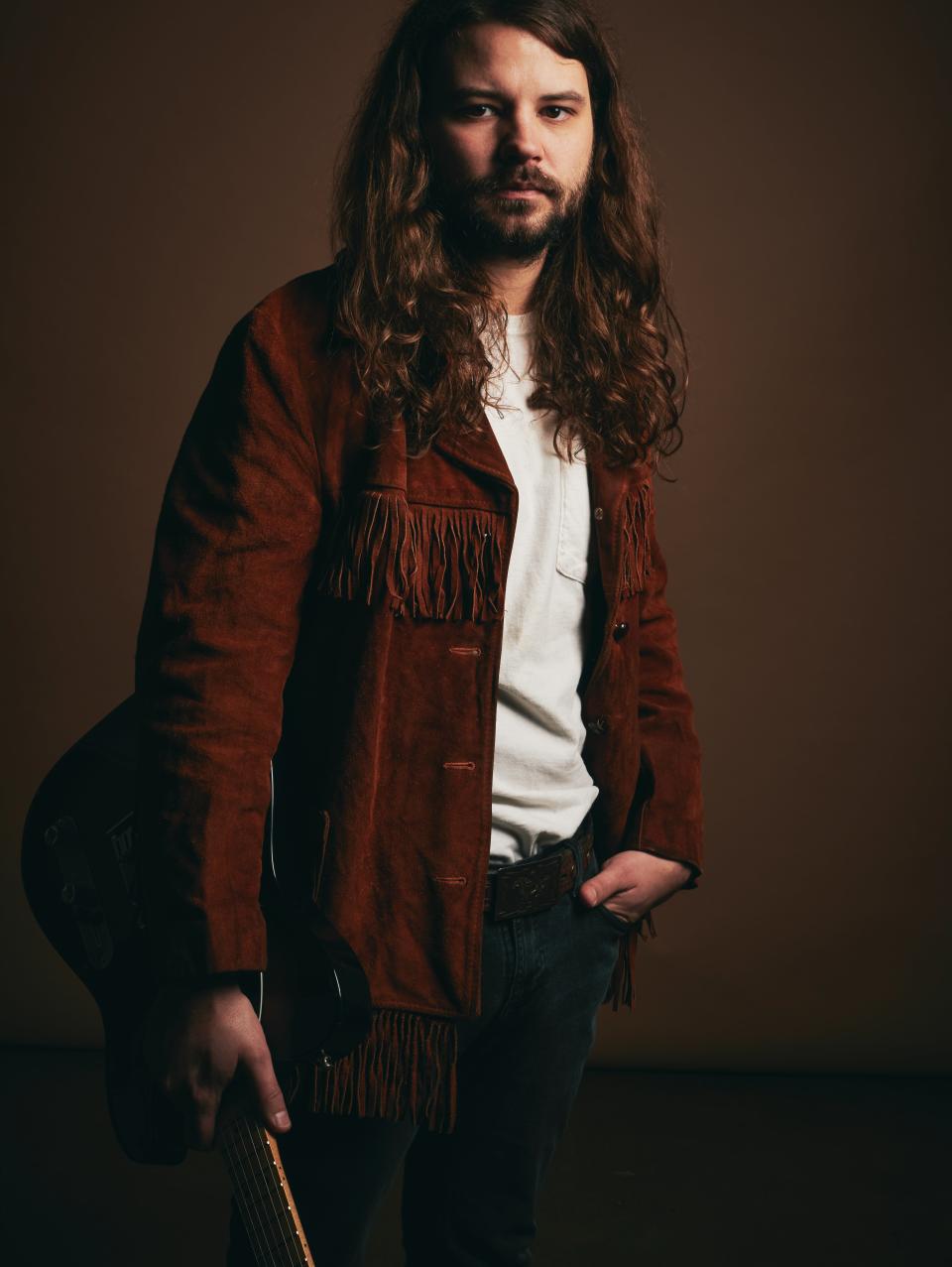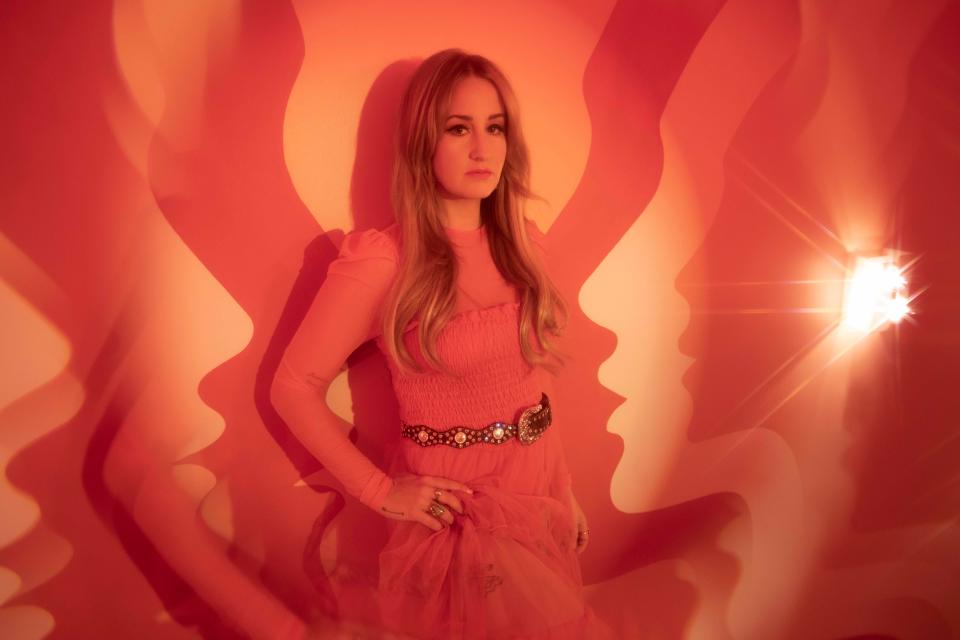‘No one was going to utter that they didn’t like Trump’: The return of outlaw country

Clockwise from the left: Tyler Childers, Chris Stapleton, Brent Cobb, Margo Price and Colter Wall
(Getty/iStock)The word “outlaw” floods the imagination with images of Hollywood-coiffed cowboys and spaghetti westerners, waltzing into frame with a Wild West swagger and a tip of the 10-gallon hat. In popular culture, they are viewed as avengers, ones who champion a vigilante style of justice, admired and supported by the underdogs and the lower classes they serve. This image is constantly reborn, transforming between generations and appearing at times when the outlaw is needed the most.
In country music, in the midst of the social and political turmoil of the past few years, the modern-day musical outlaw has reappeared, all guns blazing. This is “outlaw country”, reborn. These artists’ stripped-down instrumentals and poignant lyrics address important themes that are miles away from the current surface-level tropes dominating mainstream country music – boozing, partying, knocking boots. In recent years, an experimental sound and a national consciousness are being explored in the music of Sturgill Simpson, Tyler Childers, Colter Wall, Brent Cobb, Margo Price and more.
They are creating music that resembles what their predecessors first evangelised, yet throwing it forward to the 21st century. Coined in the Seventies, the term “outlaw country” refers to a movement of artistic freedom and a means to break away from the corporate machine that dominated the country music mecca, Nashville, Tennessee. From Waylon Jennings and Merle Haggard to Johnny Cash and Billy Joe Shaver, outlaw country’s figureheads were reacting to the slick production pioneered by producers such as Chet Atkins and usual themes of country songs. Their sound was raw and real, sending the listener on a cold steel voyage down the neck of a slide guitar and right into a smoky honky tonk. Rolling Stone noted in their Atkins obituary that the new “Nashville sound” created “a fork in the road for country music listeners; purists found the lush, pop sensibility tainted, but the genre found more stars for a bigger, broader audience”.
As a result, the first country album in history to reach platinum sales in the US was by this rising alternative crew: 1976’s Wanted! The Outlaws, featuring songs performed by Waylon Jennings, Willie Nelson, Jessi Colter and Tompall Glaser. American music journalist Chet Flippo observed in the liner notes how “their music didn’t conform to the country norm of songs of divorce and alcohol and life’s other miseries.” These pioneers of the genre instead wrote songs about the grittier side of life: think of Johnny Cash’s “Cocaine Blues”, Waylon Jennings’s “Ramblin’ Man” and Merle Haggard’s “Mama Tried” – sex, drugs, and rock n’ roll, accompanied by a twang. Songs were sinful and debaucherous, exploring themes of hard living, incarceration, and anti-establishment. They spoke of fighting with authority, for the underdog and, most importantly, against social injustice. They weren’t afraid to touch on political issues and shed light on the decidedly unglamorous side of life.
Shaggy-haired, Georgia-born singer-songwriter Brent Cobb says that these themes particularly resonate with emerging country artists today. “I think the spirit of [outlaw country] is being able to make natural-sounding music and not feel like you have to market your writing,” he says, talking about the rise of authenticity among his peers. His music is a stark contrast to the “bro country” trend – electronic-pop fused country music that has taken off in the past decade, with Luke Bryan, Jason Aldean, Eric Church, and many other “good ol’ boys”. Like his outlaw country forebears, Cobb’s music tends to explore hard-living, social injustice and characters who are stoically anti-establishment: his album released last month, Keep ’On They Toes, reflects his love of the South but includes songs that observe societal injustices while applauding individuality.

Brent Cobb: ‘I’ve always been able to remain true to myself’
Yet as the Seventies began to dissolve into the synth-dominated electronic wave of the Eighties, those themes started to disappear from modern country music. By the 2010s, they were virtually nonexistent. That trademark rebellious spirit heard in songs like Waylon Jennings’s “Honky Tonk Heroes” and Hank Williams Jr's “Family Tradition” were traded in for country-rap tracks. The theme of anti-authority became almost taboo in itself, as country music grew glossier and more polished with the years. Few modern country artists would confess in song, “I turned 21 in prison doin’ life without parole/No one could steer me right but Mama tried”, as Merle Haggard did. Instead, rebelliousness was replaced by schmaltz. The mainstream country that dominates the airwaves remains stuck in a sticky-sweet, bubblegum-packaged, electronic-infused “pickup truck” brand of pop-country. And that’s before we’ve even mentioned Taylor Swift.
Steve Earle is one of the last living legends of the outlaw country movement in the latter half of the Seventies. The 65-year-old is famous for his “power twang”, a unique blend of heavy metal and bluegrass as heard on the popular “Copperhead Road”, and is notoriously critical of the dominant pop-country sound, particularly when it comes to male artists: “The guys just wanna sing about getting f***ed up. They’re just doing hip-hop for people who are afraid of black people,” he told The Guardian in 2018. He added that “the best stuff coming out of Nashville is all by women”. His exception was Grammy Award-winning artist Chris Stapleton, who happens to be releasing a new album, Starting Over, this week.
But if Earle listened close enough, he’d hear a shift occurring in the country music scene. A new life is being given to outlaw country, offering new takes on the classic “outlaw” themes. Sturgill Simpson, who has been heralded as the “saviour of country music”, set a precedent in 2014 for what country music could be again with the release of Metamodern Sounds in Country Music. The songs on that record, from “Turtles All the Way Down” to “Long White Line” to “Just Let Go”, explore the human consciousness, psychedelic drug use and ego-death, topics that are far deeper and more introspective than any “tailgate party” could provide.
Then came Colter Wall’s Imaginary Appalachia and Tyler Childers’s Purgatory, two albums that are reminiscent of the outlaw style of old. Telling stories of “Sleeping on the Blacktop” and “Living on the Sand”, Wall’s 2015 album is riddled with tales of “whisky and women and good-hearted villains”. Meanwhile, Childers claims in his 2017 debut: “Lord it’s a mighty hard livin’ but a damn good feelin’ to run these roads.” He paints the hardscrabble ways of life in the American South through love songs, murder ballads and anthems to troublemakers like himself. By the end of the decade, country music, outlaw style, had officially returned – though it’s a mark of just how reluctant artists are to be mentioned in the context of any music “trend” that Wall declined to be interviewed for this piece. (His latest album, Western Swing & Waltzes and Other Punchy Songs, was released earlier this year.)

New frontiers: country artist Colter Wall
Darby LeiberThe outlaw country image is no longer only limited to male musicians, either. Artist and producer Margo Price, who released her third album, That’s How Rumors Get Started, in July has been an “outlaw” since she first stepped onto the country music scene a few years ago. And her 2017 album, All American Made, was early evidence that she wasn’t one to shy away from tackling hard-hitting subjects in her songs. “I see people that were afraid to speak out about things in the beginning,” she says now, about country music at large. “No one was going to utter that they didn’t like Trump, but I f***ing put out a political country record and went public and said that I didn’t support him, I didn’t like him, and I was going to vote for Hillary.” The move lost her a lot of fans, she admits. “But at the same time, somebody needed to be saying that.”
Asked about being a woman in what is often a highly sexist and misogynist music scene, Price says it’s “all of the guts but none of the glory”. She adds: “I still feel like a complete outsider [but] I’m not going to play the games that they want me to,” she says. “I’m not gonna go out and kiss radio programmers’ asses. I’m not gonna censor myself.” Her vision of the future of country music isn’t as the innovator that we hope it could be, but as “a dog that’s chasing its own tail…” However, Price remains positive, saying that “there are still going to be enough people out there that are respecting the tradition and reinventing it”.

‘I’m not going to play the games’ – country artist Margo Price
Bobbi RichThis story of resurgence in the country genre is important now more than ever. In the past, country music has been the voice of white America. Now amid recent social turmoil – riots, protests, and civil disobedience – dominating the media and our everyday lives, the world is seeing a rise of the modern-day outlaw all around. In the streets with painted signs. At the voting polls with ballot in hand. Behind a mask protecting the greater good. These emerging country artists are offering up a sound that echoes the same brutal honesty and anti-authority ideals seen in current events. This new kind of country is a breath of fresh air in the long since stagnant world of Nashville.
Perfectly Imperfect at the Ryman by Margo Price is out 4 December
Read More
Marika Hackman: ‘My fanbase is baby gays, straight guys and old dudes’
The Cribs: ‘Bands tried to recreate the groupie scene of the 1970s’


